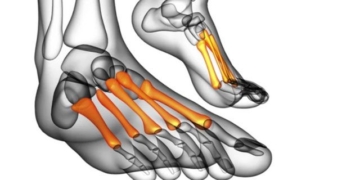Sleep is a state of the body that aims to restore the balance of endogenous and exogenous factors, characterized by the circadian rhythm, ensuring the recovery of brain functions during wakefulness and sleep.
Throughout life, an individual sleeps an average of about 220,000 hours, and sleep disorders are often the earliest symptoms of mental illnesses.
 |
(Photo: TTO) |
Typically, people sleep around 6-7 hours per night. The biological cycle of sleep is 25 hours, but due to external factors, the sleep-wake rhythm is only 24 hours. Sleep is divided into two stages: non-rapid eye movement (NREM) sleep and rapid eye movement (REM) sleep.
NREM sleep accounts for about 75% of the total sleep time, while REM sleep makes up the remaining 25%. The transition from REM to NREM sleep and vice versa generally occurs very quickly; in fact, these two stages can only be clearly distinguished through polysomnography during sleep.
Primary insomnia is characterized by patients primarily complaining of: difficulty falling asleep or difficulty staying asleep, lasting for at least one month. Primary insomnia occurs independently of any other physical or mental disorders. Patients may experience increased activity at night and reduced sleep, along with excessive feelings of joy or sadness.
Primary insomnia can lead to anxiety disorders, irritability, lethargy, fatigue, decreased work capacity, difficulty concentrating, and memory impairment. It is more common in older adults and is prevalent among women compared to men. The condition is frequently observed in adults but rarely occurs in children and adolescents. Young individuals often complain of difficulty falling asleep, while middle-aged and older adults frequently report difficulties in maintaining sleep and waking up early.
This condition is quite common; according to the American Psychiatric Association, up to 40% of adults report insomnia in a year, and about 15-25% experience primary insomnia. Most cases of primary insomnia arise after experiencing psychological stress factors. However, primary insomnia tends to be persistent; even when psychological stress factors are resolved, insomnia may continue.
Nevertheless, primary insomnia is a chronic disorder, often lasting several months and even years. Therefore, treatment requires sufficient time and should avoid the use of medications that may lead to dependency.
Medications Used for Primary Insomnia
Some sedative medications can be used to treat insomnia, such as thioridazine and olanzapine. These medications can be used long-term without the fear of addiction. Mild antidepressants like amitriptyline (Elavil), mirtazapine (Remeron), doxepin, and ludiomine are very effective in treating primary insomnia.
Moreover, these medications also help treat anxiety and depression, which are common causes of insomnia. Therefore, using these medications is very convenient, yielding good results whether the diagnosis is primary insomnia or insomnia due to unclear depression or anxiety. Among these medications, amitriptyline is the most affordable and easily accessible but has the most side effects, so the dosage should be gradually increased to allow patients to adjust.
Remeron is also readily available on the market and is effective like amitriptyline, but it has very few side effects, making it convenient for patients, especially older adults; however, it is more expensive. Here are some specific treatment regimens:
– Regimen 1: Elavil 25mg, take 1 tablet every night in the first week, 2 tablets every night in the second week, 1 tablet in the morning and 2 tablets at night in the third week, and from the fourth week onward, take 2 tablets in the morning and 2 tablets at night. Medication should be taken for 6-12 months.
– Regimen 2: Remeron 30mg, take half a tablet, if necessary, one tablet, taken in the evening before bedtime. Medication should be taken for 6-12 months.
– Regimen 3: Olanzapine 10mg, take half a tablet every night, or one tablet if needed. Medication should be taken for 6-12 months. Olanzapine can be replaced with thioridazine 100mg.
In conclusion, primary sleep disorders are very common, chronic, and relatively complex to treat. Therefore, patients need careful consultation and treatment from a psychiatrist.




















































